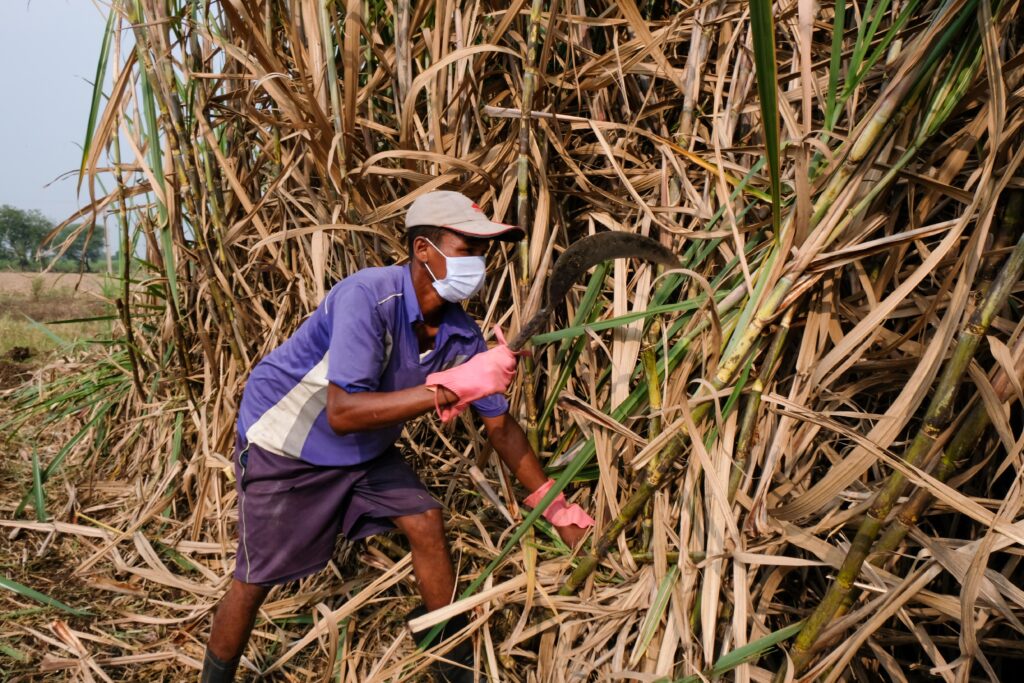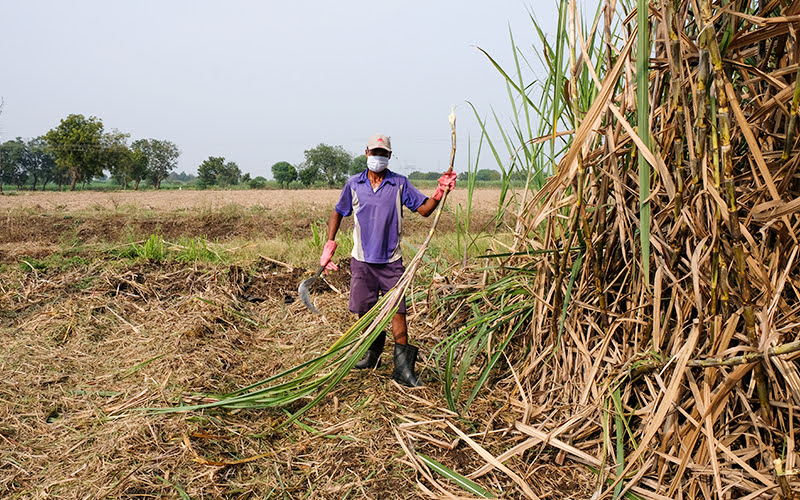The Sustainable and Ethical Engagement in Decent Sugarcane (SEEDS) programme is built on the foundational idea that the issues of sustainability and decent work are inseparable.
FROM MEETHA SONA TO SEEDS
The Meetha Sona programme launched in 2016 with the support of Coca-Cola and International Finance Corporation (IFC), and with partners like Indian Council of Agricultural Research (ICAR) and Indian Institute of Sugarcane Research. The programme addressed systemic challenges in the sugarcane supply chain, including low productivity, water inefficiency, and unsustainable farming practices.
Meetha Sona utilized a participatory approach, engaging farmers to co-design solutions tailored to local challenges. Key interventions included introducing water conservation techniques, such as mulching post-harvest waste and drip irrigation, and building the capacity of smallholder farmers through training on good agricultural practices.
By 2019, the programme expanded to Karnataka with Shree Renuka Sugars Limited, scaling these solutions and achieving outcomes, such as saving billions of liters of water and helping a substantial number of farmers improve their productivity.
In 2022, the programme further expanded to Maharashtra. Solidaridad and Coca-Cola recognized that long-term success required integrating responsible labor practices focused on the welfare of migrant workers in sugarcane value chains. These workers, who form the backbone of the industry, often lack safe working conditions, sanitation infrastructure and basic welfare services. This led to the integration of Human Rights and Decent Work (HRDW) principles into the programme in May 2023.
The HRDW pilots focused on improving awareness among mill managers, workers, and H&T (Harvest and Transport) gang leads, while piloting interventions such as shaded rest areas, mobile toilets, and ergonomic tools.

PLANTING THE SEEDS PROGRAMME
SEEDS adopts a comprehensive approach, balancing environmental stewardship with ethical labor practices to create a thriving sugarcane industry that aligns with modern sustainability standards.
Building on baseline data from the HRDW pilots, programme managers identified key challenges and are co-creating solutions with farmers and workers. For example, interventions such as mobile water points and shaded rest areas were designed with direct input from workers, ensuring usability and impact.
SEEDS also emphasizes the role of management systems in maintaining these interventions. The programme works with mills to embed decent work practices into their operations, ensuring long-term scalability and sustainability. Worker training and capacity building are central to this effort, covering topics such as health and safety, decent work principles, and access to government welfare schemes.
Key Components of SEEDS
- Occupational Health and Safety
SEEDS provides workers with personal protective equipment (PPE), health and safety training, and access to clean drinking water. Mobile sanitation facilities and shaded rest areas improve workplace conditions, while ongoing safety monitoring systems ensure continuous improvement.
- Water Security and Sanitation
The programme rehabilitates water bodies, installs water points, and develops community storage systems to enhance water security for workers and surrounding communities. Sanitation awareness campaigns complement these efforts by promoting hygiene practices and improving access to bathing facilities.
- Living Conditions and Child Welfare
SEEDS improves living conditions for workers by providing hygienic housing, cooking facilities, and childcare services. Child safety zones and access to education are established to support workers’ families and create safer environments for their children.
- Worker Voice and Participation
A core tenet of SEEDS is strengthening worker participation. By leveraging worker voice tools, the programme identifies challenges and co-develops solutions. This participatory model ensures that interventions are practical, scalable, and aligned with worker needs.
- Governance and Accountability
SEEDS establishes robust management systems for worker data, policy development, and grievance redressal. By linking workers to government welfare schemes and ensuring accountability, the programme creates a sustainable governance framework for the sugarcane sector.
SEEDS recognizes that decent work practices—safe working conditions, fair wages, and access to basic services—are integral to achieving environmental and social goals, and aims to set a new benchmark for responsible agricultural development.

